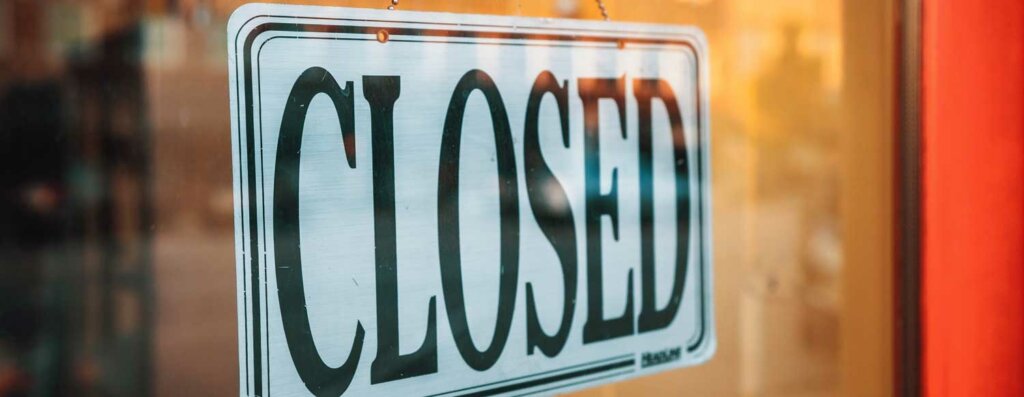
Generally, housing prices take a dip during an economic recession. Usually during a time of economic decline, the demand for houses decreases, and the supply of properties increases. Since more people are listing their homes, house prices adjust to balance the scales and entice people to buy homes. This doesn’t necessarily mean you won’t get the full value of your home, but it is important to understand the overall market when you sell.
What Is A Recession?
A recession is a period of temporary economic decline when general economic activity is reduced. Here are some common effects of a recession:
- Decrease in the value of the gross domestic product (GDP)
- Increase in unemployment
- Lower incomes
- Reduced production
- Volatile financial markets
- Strengthened lending criteria from banks
- Lower mortgage rates
How Does A Recession Affect Real Estate?
In a recession, people who have lost their jobs are often not in the position to buy a house or pay a mortgage. This generally causes a decrease in real estate values because of the lower demand for properties. This can also put some homeowners in a tough position and force them to consider selling their property for financial or personal reasons.
Lower Home Sale Volume
Because many people limit their spending to necessities, there are fewer people actively looking to invest in properties. This leads to a generally lower volume of home sales. For a house buyer like us however, we help relieve sellers of their property regardless of the state of the economy.
Cheaper Sale Prices
Because the demand for houses is low, prices for homes are usually lower as well. Sellers may list their homes for a lower than usual amount; if not, you’ll likely find buyers that are looking to negotiate the asking price.
Decrease In Vacancies
Vacancies, particularly in rental properties, may decrease because people are less compelled to relocate or purchase a home. They are also more likely to relinquish a home with a mortgage that is higher than prevailing rental rates.
Increase In Foreclosures
With a recession bringing lowered incomes and increased unemployment, homeowners may begin struggling to pay their mortgages. This can lead to an increase in foreclosures and evictions to homeowners across the country. Alternatively, banks force foreclosures more frequently,
Does A Real Estate Recession Always Follow An Economic Recession?
There isn’t always direct causation between an economic recession and a real estate recession. A real estate downturn can also be caused by factors independent of a recession; factors that are exclusive to the real estate market such as market affordability.
Which Housing Markets Are Most Affected by Recessions?
Some housing markets are more vulnerable to recessions than others. How a housing market is affected by a recession depends on several factors such as the location and the type of property, among others.
That being said, some housing markets are stable enough to withstand most recessions with little to no change in price.
High-Priced Properties
Expensive listings are harder hit by recessions than their lower-priced counterparts because the market for them is relatively limited. There are less of these expensive properties on the market, so when prices increase, even high-paying home buyers may be looking at a cheaper price point. Meanwhile, properties listed at mid-range rates are more likely to maintain a stable demand.
Metropolitan Areas
During a recession, people tend to move away from metropolitan areas. This makes properties in big cities less desirable, while rural properties may even see an increase in interest from those relocating.
New Developments
New developments—both neighborhoods and individual properties—become at risk during a recession because they are more likely to be left delayed or unfinished, due to restrictions in homebuilding industries. Established neighborhoods are better able to weather economic storms.
Should I Buy or Sell a House in a Recession?
Buying or selling a house during a recession depends on many factors. But the two most important questions any homeowner should ask are, “Do I need to buy or sell a house?” and “Can I buy or sell a house (i.e. am I financially prepared)?”
Buyers are at an advantage during a recession because of cheap prices and low mortgage rates; that is, if they have the capital to spend in the first place. Still, some risks come with buying in a recession, especially when it involves the purchase of a short-sale or foreclosed home.
Sellers, on the other hand, are usually at a disadvantage in a traditional market sale. Selling a home during a recession typically means that the low market prices can also bring down the value of the property. It doesn’t help the traditional seller that costs remain fixed regardless of the economic environment – that’s why we cover all closing costs, saving homeowners from the risks and stress of selling a home. If your property is undermaintained and you’re looking to sell, contact us today to get a cash offer on your home. We’ve worked with homeowners across San Diego County for years to give them a fast and stress-free sale, taking homes as is regardless of the condition.
Keep Reading:
Previous Article: What does it mean when a house is off market
Next Article: How does the IRS know if you sold your home